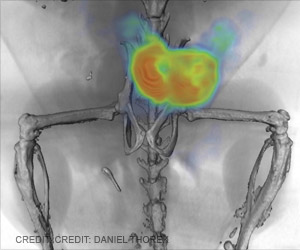Gene signature identified for aggressive prostate cancer which could aid in diagnosis and for determining course of treatment.
- Gene signature for aggressive form of prostate cancer identified by researchers from Princess Margaret Cancer Centre.
- It would aid in identifying prostate cancer patients with poor prognosis
- The researcher team showed that BRCA-2 associated prostate cancer shows poor prognosis due to faulty DNA repair mechanism
The genetic fingerprints that the scientists identified aided in
- Discerning men who were well after radiotherapy or even surgery and men who had an early spread of the disease which was out of the prostate gland.
- Provided a new identification or a benchmark about response to treatment.
- Provided clues for better treatment for men with certain types of prostate cancer.
The research team that conducted this study was led by Dr. Bristow and Dr. Boutros, who together head the Canadian prostate cancer genome network (CPC-Gene), the world’s leading sequencing program on prostate cancer, and have worked on prior discoveries.
The research team first identified the molecular portrait of prostate cancer that was multi-focal with a new gene subgroup. This study was published in the journal Nature Genetics on May 2015. Another previous study dealt with the development of a genetic test that was designed to identify men who were at a higher risk to develop prostate cancer and for a higher propensity for recurrence following radiotherapy or surgery.
Prostate Cancer and BRCA
Another study that was published by the same authors recently dealt with how BRCA-2 associated disease was lethal in certain cases in men when the mutation in the gene leads to fault in DNA damage repair.Clinical studies show that some forms of prostate cancer have poor diagnosis and are associated with hereditary factors. This is consistent with the studies on BRCA1 and BRCA2 mutations. The association between prostate cancer and BRCA-2 is consistent within research. There are also other studies that have found that men who carry mutations in BRCA-2 have an elevated risk of developing prostate cancer while male carriers of BRCA-1 mutation are known to have a moderately higher risk of getting prostate cancer when compared with people without the mutations. The study shows that men with the mutation in the BRCA-2 gene have a 7 times higher risk of developing prostate cancer than men without the mutation.
BRCA-2 gene is a very important gene in cancer growth and development but it’s significance among men has only been recently highlighted. The research team found that men with the mutation in BRCA-2 showed poor prognosis due to a faulty repair DNA repair mechanism.
The genetic fingerprints that have been identified in these research studies aid in identifying patients at higher risk of having an aggressive form of prostate cancer and will aid in tailoring treatment accordingly, paving the way for personalized care.
Source-Medindia
















